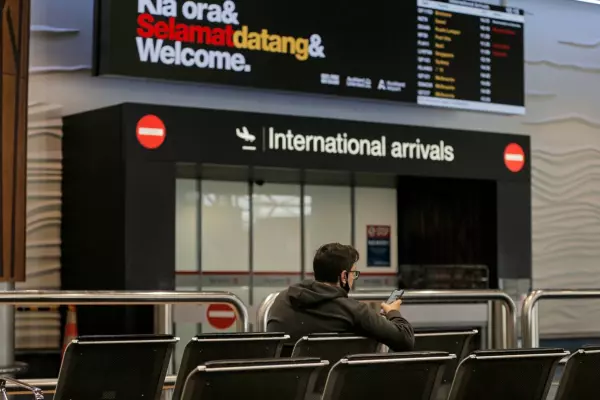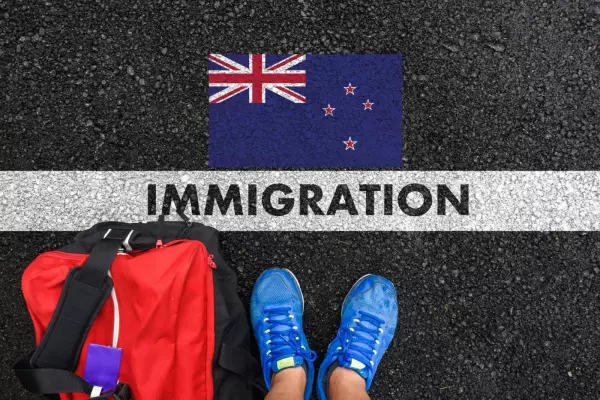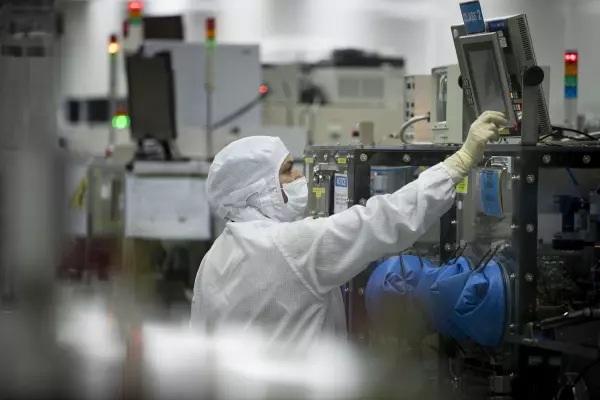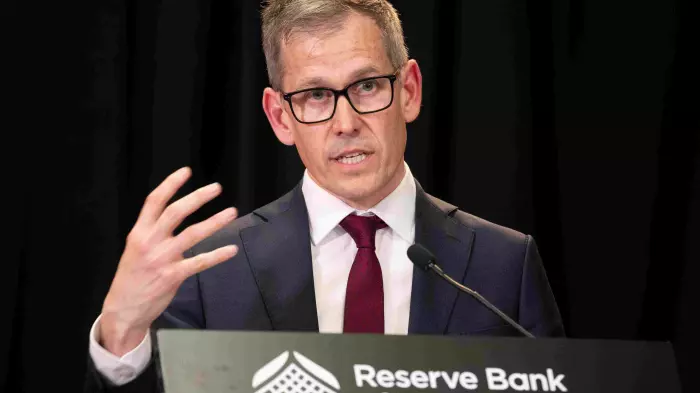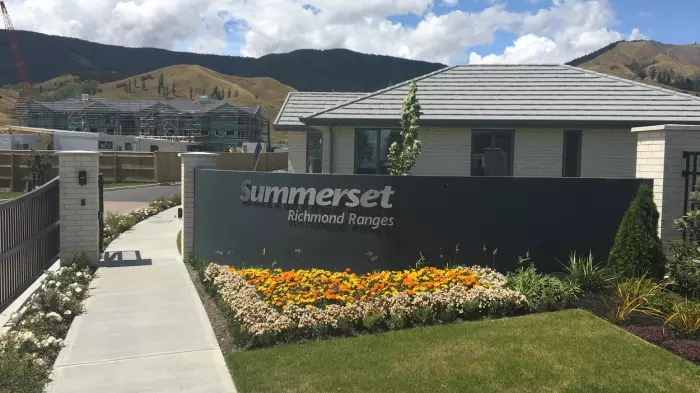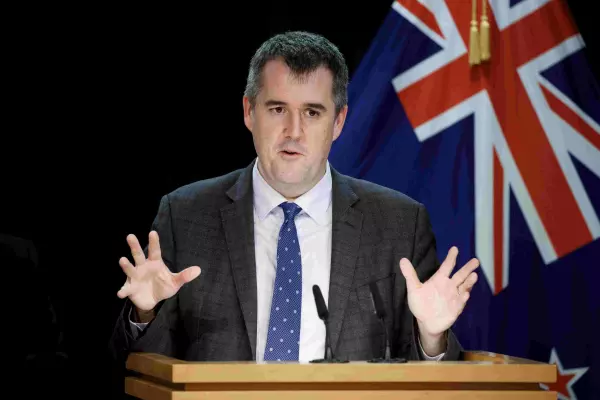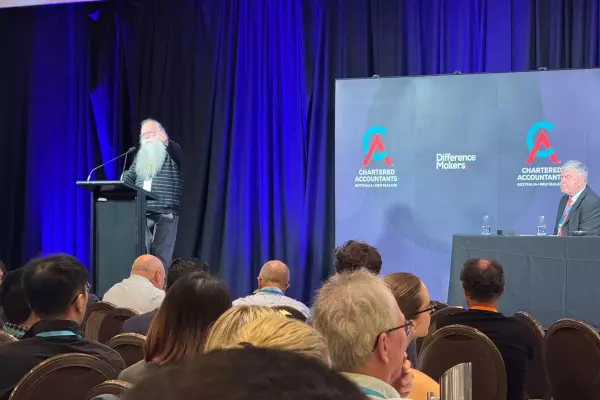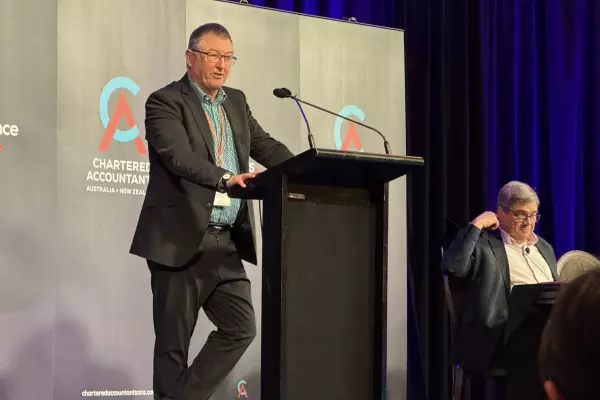If you want an idea of how politicians and civil servants govern, watch the miniseries This England. It's equal parts brilliant and terrifying.
It shows the disconnect between politicians, civil servants and their respective communications teams, and how the government of England (mis)handled the covid pandemic.
It's chilling in the cynicism shown by those in power. How they manipulated the public and tried to hide their ineptitude through spin-doctoring which, in the case of England, led to avoidable human misery, death and an economic calamity.
Here in New Zealand, we're witnessing the same dysfunction, cynicism, ineptitude and intentional spread of half-truths and misinformation.
Our 'England' is the immigration department.
Not getting a visa won’t kill too many people, but we are witnessing misery on a scale I have not seen in my 33-year career as an immigration adviser.
If the immigration department was a real business with real competition rather than a government monopoly, we would be witnessing its final death throes.
The operational and managerial dysfunction and the attempts to mask it are at a level I have never seen.
Real harm is being done to real people by INZ, yet the ongoing implosion in this department is largely being blamed, wait for it, on temporary and permanent migrants. That’s right, Immigration NZ's own customers.
Mind the spin
The department was supported and cheered on, it seems, by a minister the immigration industry held great hopes for after the less-than-impressive previous two ministers who ran the immigration circus before him.
It was aided and abetted by the spin doctors inside the department churning out half-truths and a lot of misinformation to its customers and the wider audience, one assumes to try to deflect and protect the government from the embarrassment it deserves to suffer.
I offer two classic examples over the past 10 days.
The first was the reopening of the skilled migrant category this week.
It was announced over a month ago that applicants who believed they had 160 points could file their Expression of Interest (EOI). An EOI is a glorified questionnaire loaded as an online form. No supporting evidence needs to be uploaded.
The minister spoke glowingly of an "easier, simpler, faster" process. (He should try using it.)
An expression of Interest must be filed using Immigration NZ's shiny new online portal called Adept. It's clearly not fit for purpose, leading more than one wag in the industry to label it Inept.
This week, the window to file these EOIs was extended to mid-day Nov 11. The spin merchants claimed this was because of "unprecedented demand".
That statement needs to be challenged, because no evidence has been presented to support it.
"Unprecedented" suggests no precedent. Yet there was one – and it was recent, back in March of this year when the special ‘one-off’ RV2021 experienced the same bugs that make filing an online questionnaire incredibly slow, random and often impossible.
No improvement
Eight months later, an expression of interest is no easier to file and that is the real reason the extension to file was granted. It appears that little progress, or at least testing, has been done since March to help the system cope with whatever ‘demand’ was thrown at it.
Inevitably, sadly, yet so utterly predictably, history has repeated itself.
As the system failures dawned on what passes for management inside Immigration NZ, the department quietly announced more and more changes to the information that had to be declared at Expression of Interest stage – not because it wasn’t required under the rules, but because its own system couldn't cope or hadn't been designed so it could cope.
By all accounts, there were around 2,600-3,000 EOIs already sitting in the ‘pool’ when Minister Michael Wood announced the reopening.
We are told there are now around 6,300, suggesting 3,000-4,000 questionnaires have been filed in four weeks. Not a big number. Yet too big for the system to cope. Labelled by the spin-doctors "unprecedented demand"? Not unprecedented and not that great either.
The extension-blaming demand was quite simply, in my opinion, trotted out to save the government further embarrassment when those who could not file their applications would miss out and start jumping up and down (mostly via the media).
When you are polling 29% and watching the numbers fall, you don’t want more negative media about your inability to actually get anything done.
In a second piece of abject cynicism, the Ministry of Business, Innovation and Employment spin doctors blamed the months-long delay in processing and finalising simple visitor visas on a subgroup of applicants – parents and grandparents applying for a visa of the same name.
The immigration department laid the blame at their feet for applying for that "product" (a visa to you and me) when they should have opted for a general visitor visa.
No evidence was provided to support this claim.
Doing us a favour
The truth is that Parent/Grandparent visas require a full immigration medical, given the applicants are eligible for an 18-month stay in the three years the visas are valid for. That means they're entitled to NZ taxpayer-funded healthcare. So, we want, rightly, to be assured their health is of a high standard.
There are, as I write, still around 30,000 visitor visas that have been filed since Aug 1 waiting for a decision. Apparently, this is because the "wrong" visa was being applied for by parents and grandparents.
The wrong visa?
They could have been honest. Was the IT platform the issue? Was the lack of capacity in the system a problem? Are there not enough immigration officers who know what they're doing?
Maybe it was the fact that someone inside INZ had only just made the decision to get applicants to provide medical certificates weeks after they'd filed their visa, when the rule book requires medicals to be filed with the visa?
Despite all these possible factors, the spin doctors this week had the gall to blame their customers for applying for the wrong type of visa.
Where’s the evidence?
The simple reason a parent and grandparent visa was put in place was to create three years of certainty for applicants. It was to prevent people who have strong links with NZ applying for a new visa every time they wanted to visit their children or grandchildren, which would cut down on the number of visas to process.
The immigration department says it doesn't have the capacity (officers) to process all that's expected of them these days.
In an irony that appears to escape the politicians, immigration ‘management’ or their communications teams, the parents and grandparents are actually doing the bureaucracy a favour by applying for one visa every three years rather than every time they want to come to NZ to spend time with their family.
It may be the spin doctors' job to protect the minister, who continues to tell us how wonderfully everything is going inside the department, but the truth is things are not going well.
Things are going very, very badly and only getting worse.
Blaming the customer
I've been calling in recent years for an independent inquiry into the circus the immigration department has become. Contrary to the spin, things are not getting better, simpler or easier – things are getting worse.
They're so bad, it seems, that we now have the spin doctors blaming customers for the department's own ineptitude and failures. Things cannot get worse than a ‘business’ blaming its customers, can it?
Our nation’s international reputation is taking a hammering. It's too embarrassing, given the importance of immigration to us as a small, export-driven economy at the end of the supply chain, with a highly nomadic population and a reliance on migrants to plug our skills gaps, to allow the immigration department to continue as it has been in recent years.
Long before covid, lockdowns and border closures, Immigration NZ was in chaos. It's just that it's now so much worse.
In BusinessDesk, minister Wood laughed off the extension announced this week as evidence that NZ is really popular.
A piece of free advice, minister – when it takes three months to process half the simple visitor visas sitting in your wonderful new IT system, two-to-three months to get work visas for the highly-skilled workers that businesses need in the tightest labour market in living memory, and years to get a resident visa for these valuable people, it ain’t going to remain very popular for very much longer.
The closing EOI figure was updated after receiving an official statement from INZ




